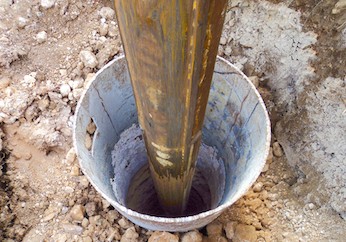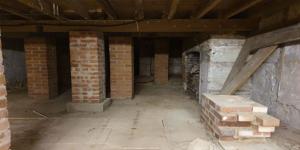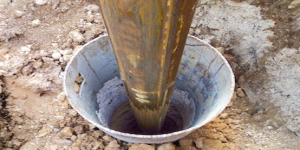Borehole drilling is a technique that allows you to access underground water sources by creating a deep and narrow hole in the ground. In this blog post, we will explain what borehole drilling is, how it works, and what are its benefits and challenges.
What is borehole drilling?
Borehole drilling is a process that involves using a rotary drilling rig to drill a hole into the ground, usually between 50 and 100 meters deep. The hole is then lined with steel casing and fitted with a pump that can extract water from the underground aquifer. The water quality and quantity depend on the geology of the area and the depth of the borehole.
How does borehole drilling work?
Borehole drilling requires a geological survey to determine the best location and depth for the borehole. The survey also helps to estimate the water yield and quality. Once the site is selected, the drilling rig is set up and the drilling begins. The drilling method can vary depending on the soil type and conditions, but it usually involves using compressed air or drilling fluids to remove the cuttings from the hole. The drilling process can take from a few hours to several days, depending on the depth and diameter of the borehole.
Once the borehole reaches the desired depth, it is lined with steel casing to prevent it from collapsing or getting contaminated by surface water. The casing also acts as a pre-filter for the water. A wellhead is then installed to seal the borehole from any possible surface contamination. The next step is to install a pump that can lift the water from the borehole to the surface. The pump can be either submersible or above-ground, depending on the power source and preference. The pump is connected to a pressure vessel that regulates the water flow and pressure. The final step is to test the water quality and install any necessary filtration or treatment systems.
What are the benefits of borehole drilling?
Borehole drilling has many benefits, especially for rural areas or places with limited or unreliable access to mains water. Some of the benefits are:
- Borehole water is natural and free of chemicals, unlike mains water that may contain chlorine or fluoride.
- Borehole water is sustainable and independent of weather conditions, unlike surface water that may be affected by droughts or floods.
- Borehole water can save you money on your water bills, especially if you use a large volume of water for domestic or commercial purposes.
- Borehole water can increase the value of your property, as it provides an alternative source of water that can be used for irrigation, livestock, or leisure facilities.
What are the challenges of borehole drilling?
Borehole drilling also has some challenges that need to be considered before deciding to invest in one. Some of the challenges are:
- Borehole drilling requires a professional contractor with experience and expertise in geology, hydrology, engineering, and environmental regulations.
- Borehole drilling can be expensive upfront, depending on the depth and diameter of the borehole, the type of pump and piping system, and the water treatment requirements.
- Borehole drilling can have environmental impacts, such as noise pollution, soil erosion, groundwater depletion, or contamination.
- Borehole drilling requires regular maintenance and servicing to ensure its optimal performance and safety.
Conclusion
Borehole drilling is a viable option for accessing underground water sources that can provide you with clean, natural, and reliable water for your home or business. However, borehole drilling also involves some costs and risks that need to be carefully evaluated before making a decision. If you are interested in borehole drilling, you should consult with a reputable and qualified contractor who can advise you on the feasibility, design, installation, and maintenance of your borehole system.















